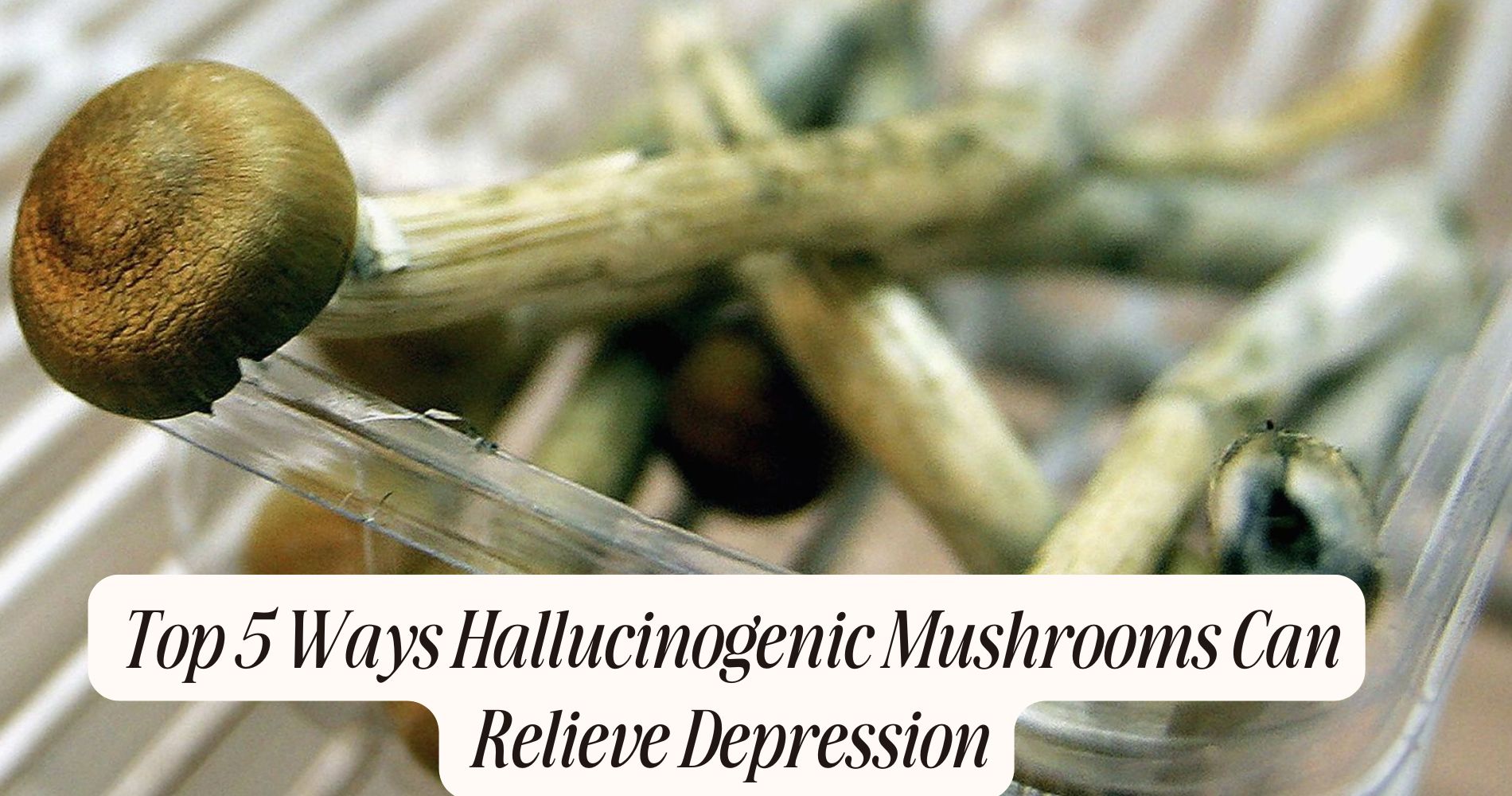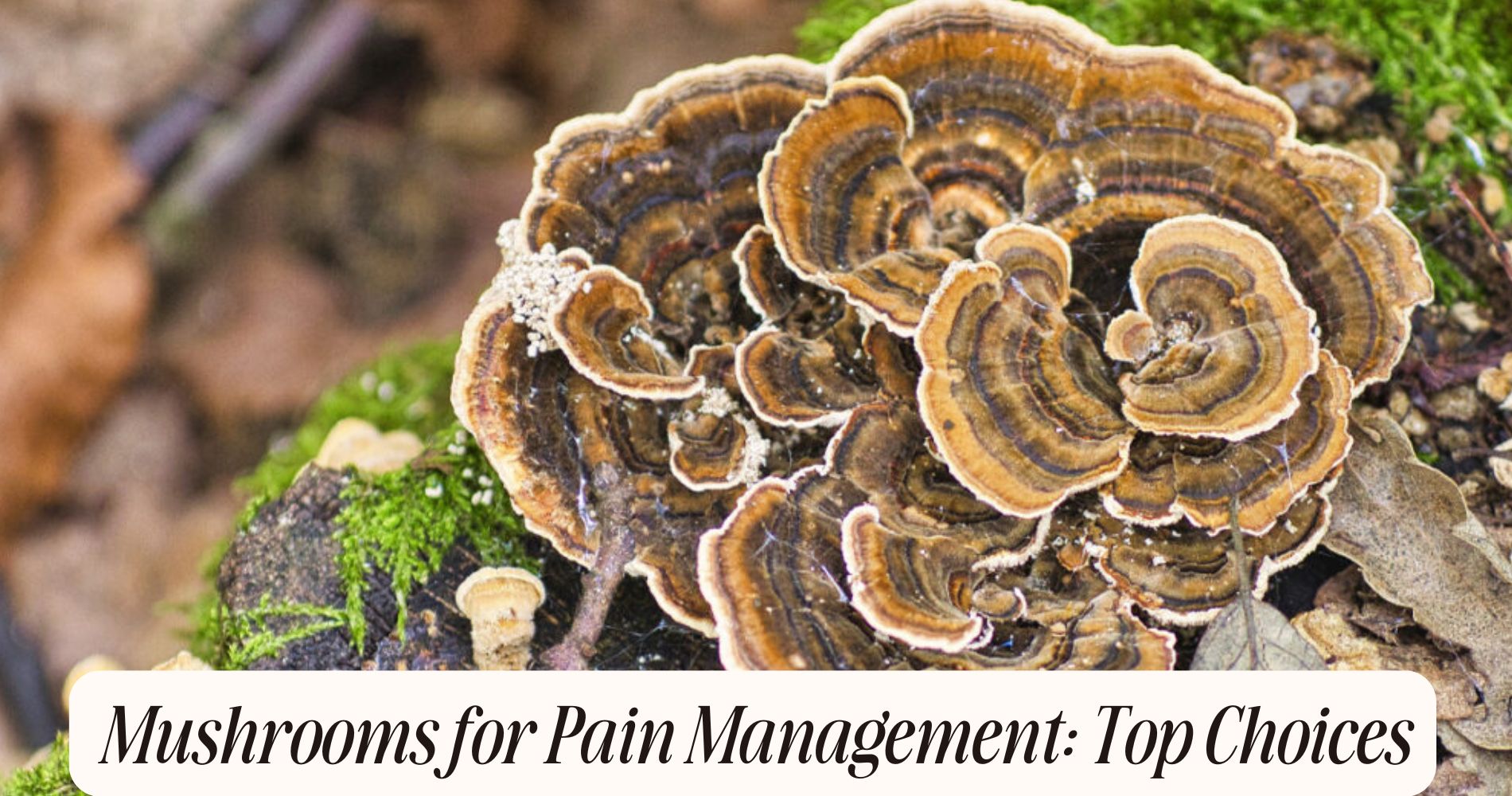
Top 5 Ways Hallucinogenic Mushrooms Can Relieve Depression
Enhanced Emotional Processing
Enhanced emotional processing refers to the ability to perceive, understand, and respond to emotional stimuli more effectively, a trait that can be greatly influenced by the use of hallucinogenic mushrooms. Research indicates that compounds such as psilocybin can alter neural pathways, potentially enhancing your capacity for emotional resilience. This enhanced processing allows you to engage with your emotions in a more profound way, facilitating a deeper understanding of yourself and your experiences.
Therapeutic applications of hallucinogenic mushrooms often focus on their ability to foster emotional awareness. Studies have shown that individuals report increased empathy and compassion after psilocybin sessions, suggesting a shift in how you connect with both your emotions and those of others. This heightened awareness can prove beneficial in therapy settings, enabling you to confront emotional challenges more effectively.

Moreover, the neuroplastic changes induced by hallucinogenic mushrooms may support emotional resilience by allowing you to develop healthier coping mechanisms. As you navigate through emotional challenges, this resilience can empower you to process your feelings more fully, ultimately leading to improved mental health outcomes.
Reduction of Negative Thought Patterns
Recent studies suggest that hallucinogenic mushrooms, particularly those containing psilocybin, can markedly reduce negative thought patterns associated with depression and anxiety. This reduction is largely attributed to psilocybin's ability to enhance cognitive flexibility, allowing you to shift your thinking patterns more easily.
When experiencing depression, you're often trapped in a cycle of negative thoughts that perpetuate your emotional state. Psilocybin facilitates a psychological space where you can engage in thought reframing, a process that encourages you to view situations from different perspectives.
Research indicates that during psilocybin experiences, individuals report a profound alteration in their perception of self and reality. This altered state promotes an openness to new ideas and interpretations, breaking the rigid thought patterns that characterize depression.
By enhancing cognitive flexibility, psilocybin effectively provides you with the tools to challenge and reshape these negative thoughts.
Moreover, the therapeutic context in which psilocybin is administered often fosters a supportive environment for this transformation, allowing you to explore underlying emotional issues without the weight of judgment.
As a result, the combination of cognitive flexibility and thought reframing can lead to sustained improvements in mental health and emotional well-being.
Increased Neuroplasticity
Studies indicate that hallucinogenic mushrooms containing psilocybin can greatly boost neuroplasticity, the brain's ability to reorganize itself by forming new neural connections. This enhanced neuroplasticity is vital for overcoming depression, as it allows for the adaptation of thought processes and emotional responses.
Research shows that psilocybin promotes neurogenesis stimulation, encouraging the growth of new neurons and improving overall brain health.
Psychedelic therapy utilizing psilocybin has demonstrated significant effects on the brain's structure and function. In clinical studies, participants have shown increased connectivity in areas associated with mood regulation and cognitive flexibility. These changes can lead to more adaptive coping mechanisms and help combat the rigid thought patterns often present in depressive disorders.

Furthermore, the activation of specific serotonin receptors by psilocybin enhances synaptic plasticity, which is essential for learning and memory. This process allows individuals to form new associations and perspectives, further aiding their recovery from depression.
Promotion of Mindfulness and Presence
Mindfulness and presence are integral components of the therapeutic effects of hallucinogenic mushrooms, particularly through the action of psilocybin. Research indicates that psilocybin enhances your ability to engage in mindful awareness, allowing you to focus on the present moment more effectively. This heightened state of awareness can considerably reduce rumination, a common trait in depression, where individuals often dwell on negative thoughts and past events.
When you consume psilocybin, it alters neural pathways, promoting a sense of connection to your surroundings. This experience often leads to a profound shift in your perspective, enabling you to appreciate life as it unfolds.
Scientific studies show that individuals report increased satisfaction with life and a greater sense of peace after engaging in psilocybin-assisted therapy, which reinforces the importance of being present.
Furthermore, this mindful awareness encourages emotional regulation, helping you to respond to stressors with a more balanced mindset. By fostering a deeper connection to the present moment, hallucinogenic mushrooms not only alleviate symptoms of depression but also cultivate a lasting appreciation for life as it is, rather than how it has been or could be.
Long-Lasting Effects on Mood
The therapeutic benefits of psilocybin extend beyond mere moments of mindfulness, having a notable impact on mood that can persist long after the experience. Research indicates that psilocybin influences serotonin levels in the brain, a neurotransmitter closely linked to mood regulation. By stimulating serotonin receptors, particularly the 5-HT2A receptor, psilocybin can lead to an increased sense of well-being and reduced depressive symptoms.
Studies have shown that individuals who undergo psilocybin therapy often report lasting improvements in mood and outlook, even months after treatment. This enduring effect suggests a reconfiguration of neural pathways, enhancing emotional resilience and promoting a more positive mindset.

The therapeutic potential of psilocybin might lie in its ability to help patients confront and process unresolved emotional issues, ultimately leading to sustained mood elevation.
Moreover, the integration of insights gained during the experience—often described as profound or life-changing—can contribute to ongoing mental health benefits. As you reflect on these experiences and incorporate them into your daily life, you may find that your overall mood and emotional stability improve notably.
This evidence underscores the promising role of psilocybin in treating depression with long-lasting effects.
Frequently Asked Questions
Are Hallucinogenic Mushrooms Legal Everywhere?
Hallucinogenic mushrooms aren't legal everywhere. Their legal status varies markedly across regions, reflecting diverse cultural perceptions. Some areas embrace their use for therapeutic purposes, while others maintain strict prohibitions, highlighting the ongoing debate surrounding their legality.
Can Anyone Use Hallucinogenic Mushrooms Safely?
You must consider mushroom safety and responsible use before trying hallucinogenic mushrooms. Individual health conditions, mental state, and environment greatly influence safety, so thorough research and professional guidance are essential for informed decision-making.
What Are Potential Side Effects of Hallucinogenic Mushrooms?
When using hallucinogenic mushrooms, you might experience side effects like anxiety, paranoia, or altered perception. While some therapeutic use shows promise for mental health, it's essential to evaluate these potential risks before use.
How Do Dosage and Strain Affect Their Efficacy?
Dosage guidelines and strain variations greatly influence hallucinogenic mushrooms' efficacy. Higher doses may intensify effects, while specific strains can yield distinct experiences. Understanding these factors helps you tailor your approach for ideal outcomes.
Are There Alternative Treatments for Depression Besides Mushrooms?
Yes, there are alternative treatments for depression. You might explore herbal remedies like St. John's Wort or engage in mindfulness techniques such as meditation and yoga, both of which have shown promising effects in clinical studies.
Conclusion
In conclusion, hallucinogenic mushrooms offer promising avenues for alleviating depression through enhanced emotional processing, reduction of negative thought patterns, and increased neuroplasticity. Their ability to promote mindfulness and presence further contributes to their therapeutic potential. Importantly, the long-lasting effects on mood observed in some studies suggest that these substances may provide a sustainable solution for individuals struggling with depression. As research continues, integrating these findings into clinical practice could revolutionize mental health treatment.



